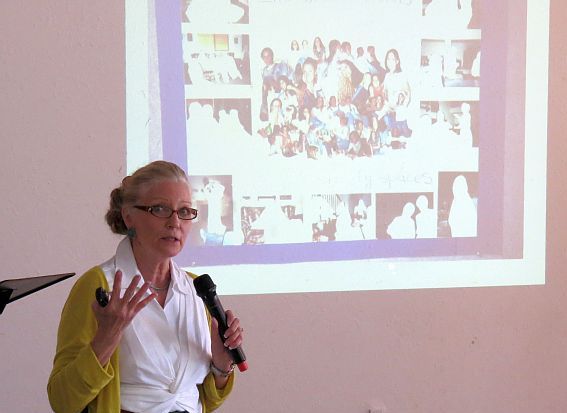
The conference is held every two years and brings together a range of victims’ advocates, representatives from local nonprofits, crime experts and others in the community that provide services – particularly to individuals with disabilities – that have been the victims of a crime.
Organizers said this year, the hope was to help participants understand how to help victims overcome the trauma they have experienced and how to create a supportive network that would help them feel safe in the future.
“When you look at it, the type of trauma experienced by crime victims is multiplied if that person has a disability because they are already in a vulnerable state,” said attorney Archie Jennings, the center’s board president, after the conference.
“In many cases, they are going to need some kind of localized services to assist them, to help them function more efficiently, and this conference brings together some of the agencies that can help fill the gap in services that we tend to see here,” Jennings said. “It gives victims the resources they need on a more efficient and informative basis.”
The conference held on St. Thomas featured a range of speakers, including Jayne Crisp, a national victims advocate that spoke about the importance of developing communication skills to help people get through a traumatic event.
“A lot of that is crisis intervention, making sure people feel safe and secure, making sure people get to tell their story and move forward,” Crisp said. For people doing the helping, it’s important to provide victims with some good concrete opportunities for telling their story and helping them through a crisis intervention procedure or educational process that helps reduce the impact of the trauma for a significant amount of time.”
Jennings and other speakers talked about the lack of centralized services for victims locally – particularly those whose cases see no resolution in the criminal justice system. Two of the speakers were parents of children that had been violently injured or killed, and they discussed their experiences with the V.I. Justice Department and working with local victims’ advocates.
Jennings said later that what the parents touched on was essentially a gap in services between the initial meeting with the victims’ advocate and follow ups with either the Justice Department or other providers that would be able to answer their questions or address any other needs.
Many states offer what is called a “crime victims’ compensation program” that helps victims of violent crime pay for medical, counseling and funeral expenses, among other things, and many in the territory do not even know if that option is available to them, Jennings said.
As a solution, Jennings spoke about his hope for a one-stop facility that might be able to provide all the necessary victims’ services, from beginning to end, while Crisp also spoke about the importance and need for victims to be able to connect with other victims.
“It gives them energy when they can connect with other surviving members and, as a result, we can enact legislation or develop programs based on their needs,” Crisp said. “Advocates also need assistance, information and the necessary funding, and that’s how this victims’ movement came about – responding to the need to make things change.”
Many participants Wednesday said they took away some valuable information from the conference, including how to properly respond to victims and their needs.
Sabrina Cohen, an assistant attorney general with the V.I. Justice Department, said she was “able to see how, in each person that’s a victim, there are different phases that they go through and different ways in which they deal with it.
“And I definitely see the importance of having a victims’ advocate coming to the crime scene, making contact with the victim and then following up with that person at all times,” she said. “I’m really going to look at that when I’m going through my cases in the future.”





